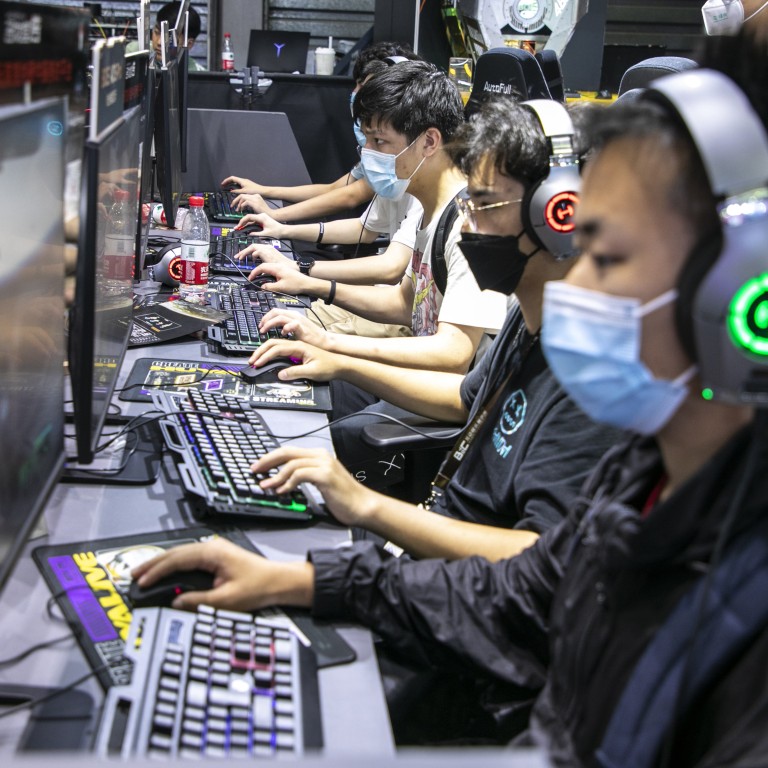
China gaming crackdown: revenue, user base shrink for first time under harsh regulations, slowing economy
- Total revenue generated by Chinese video gaming companies and the number of gamers in the country both fell in the first half of 2022
- The slowdown comes after the Chinese government implemented some of the world’s toughest regulations on video gaming
Total revenue generated by Chinese video gaming companies and the number of gamers in the country both fell in the first half of 2022 from a year ago, marking their first decline since data became available in 2008, according to a report published by the country’s semi-official gaming association.
The combined revenue in China’s video gaming market decreased 1.8 per cent, while the number of gamers fell slightly to 665.69 million at the end of June from 666.57 million in December, the Game Publishing Committee of the China Audio-Video and Digital Publishing Association said in a report released at an industry conference on Thursday in Shaoxing, a city in eastern Zhejiang province.
That decline suggests that the era of unfettered growth in the world’s largest video gaming market has come to an end.
Domestic revenue from Chinese gaming companies shrank 4.25 per cent during the period from a year ago, down from the 8.3 per cent growth in the first half of 2021, and the 30.4 per cent growth in the first half of 2020.
The slowdown comes after the Chinese government implemented some of the world’s toughest regulations on video gaming, which is viewed by the country’s leaders as harmful to the healthy development of Chinese youth.
The harsh rules, coupled with China’s ageing population and a slowing economy, have transformed the industry landscape.
In search of new revenue streams, industry giants – including Tencent Holdings, NetEase and miHoYo – have rushed to expand internationally.
Overseas revenues from games developed in China rose 6.2 per cent to US$9 billion in the first half of the year, although the growth rate slowed significantly from a few years ago, according to Thursday’s report.
Zhang Yijun, director of the gaming committee, said during the conference that the shrinking number of gamers in China means that the “demographic dividend” is over for domestic gaming companies and they will have to compete in a market with fewer users.
“Because of the overall downturn of the market … overseas businesses have become a breakthrough segment for domestic game development,” Zhang said. “However, due to the cost increase in growing overseas traffic and the strengthening of international trade barriers, the growth rate in overseas markets is slowing down compared with the same period last year.”


